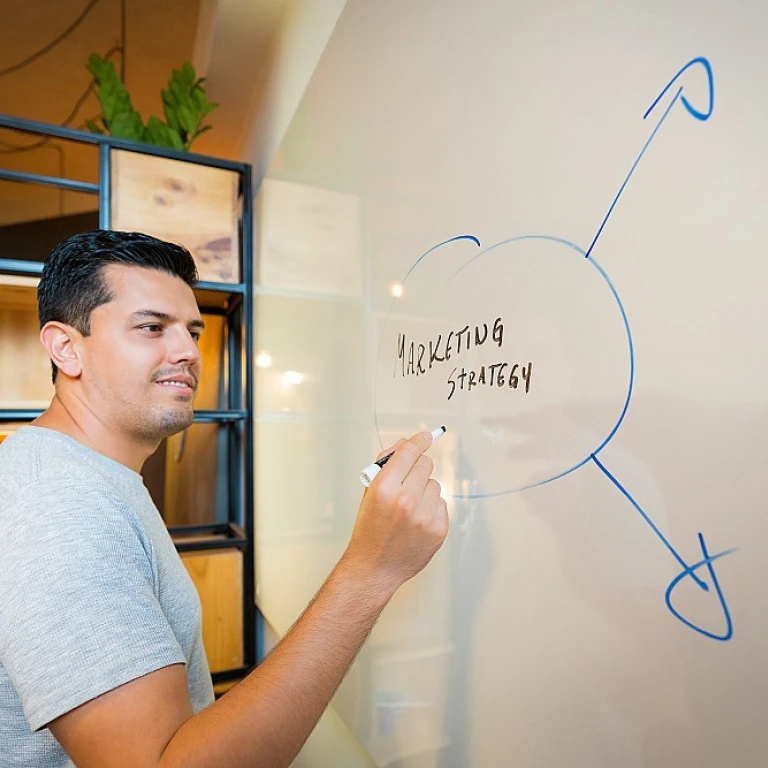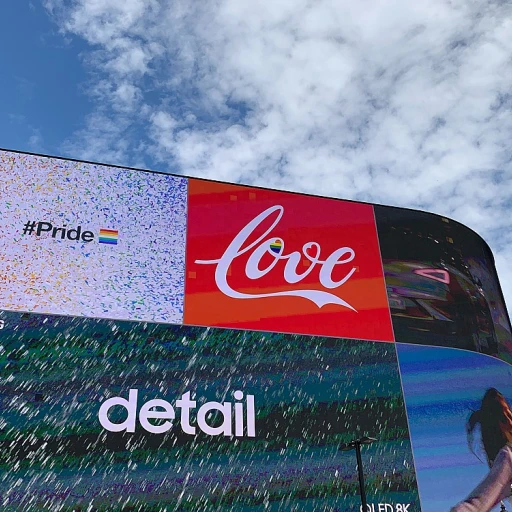The Role of AI in Enhancing SEO
AI-Powered SEO: A New Era of Search Optimization
The integration of artificial intelligence into search engine optimization (SEO) is revolutionizing how businesses approach their digital marketing strategies. AI's ability to process and analyze vast amounts of data in real time allows for more precise targeting and personalization, enhancing both the efficiency and effectiveness of SEO efforts.
AI tools can analyze user behavior and preferences across various social media platforms, providing insights that help businesses tailor their content to better engage their target audience. This data-driven approach enables brands to optimize their media strategy, ensuring that their content resonates with their audience and enhances engagement.
Enhancing Content Strategy with AI
Incorporating AI into your content strategy allows for the creation of more relevant and engaging content. AI algorithms can identify trending topics and predict future trends, enabling marketers to stay ahead of the curve. This predictive capability is crucial for businesses aiming to maintain a competitive edge in a rapidly evolving digital landscape.
Moreover, AI can assist in content generation, ensuring that the material produced aligns with the interests and needs of the audience. This not only enhances user engagement but also improves the overall effectiveness of the marketing strategy.
Optimizing Social Media Events with AI
Social media events are pivotal in driving brand awareness and engagement. AI can optimize these events by analyzing audience interactions and adjusting strategies in real time. This level of adaptability ensures that events remain relevant and impactful, maximizing their potential to boost brand visibility.
AI-driven insights can also inform risk management strategies, helping businesses identify potential pitfalls and adjust their approach accordingly. This proactive stance is essential for maintaining a positive brand image and ensuring the success of social media events.
For more in-depth insights into how AI is transforming search optimization, you can explore this comprehensive analysis on AI's impact on SEO.
Leveraging Social Media Events for SEO Success
Social Media Events Strategy in SEO
The intersection of social media events and SEO can greatly amplify a brand's online presence. Leveraging these events effectively requires a strategic approach to harness the power of social media platforms.- Enhancing Brand Visibility: Social media platforms like Facebook and Instagram provide a dynamic space for event marketing. Hosting media events on these platforms allows brands to interact with a vast audience and boost their visibility. Strategic event promotion can lead to increased brand engagement and higher page rankings.
- Content Optimization: User-generated content during events acts as a powerful tool for engagement. Encouraging audiences to create content during these events not only diversifies the media strategy but also contributes to content creation, which in turn supports SEO efforts. The more engaging the content, the higher the likelihood that it will be shared across networks, drawing more eyes to your brand.
- Engagement Tactics: Timely interaction with your target audience during events is crucial. Employing a well-timed content and media strategy can maximize customer engagement. This includes live interactions, which create real-time connections and foster stronger relationships with your audience through direct responses and engagement.
- Managing Social Media Risks: While social media events offer numerous benefits, they also carry inherent risks. Effective media risk management involves anticipating potential pitfalls, including negative feedback and managing the brand image during and after the event.
- Data Insights and Adjustments: Utilizing data from past events can guide future media strategies. By examining how the audience interacted with previous content, one can make informed adjustments for future events, leading to more effective media management and improved SEO outcomes.
Identifying Risks in Social Media Events Strategy
Potential Pitfalls in Social Media Event Strategies
Managing social media events for marketing can maximize brand visibility and engagement. However, with the rise of AI-driven approaches and various media platforms, identifying risks is crucial to maintaining an effective marketing strategy. Businesses must navigate several potential pitfalls in their approach to event marketing on these platforms. One primary risk is over-reliance on AI for content creation and event management. While AI can efficiently handle data analysis and generate user-engaging content in real time, the absence of human oversight may lead to brand messages that sound generic or detached, failing to resonate with the target audience. Thus, finding the right balance between AI automation and human interaction is vital in ensuring media strategies remain relevant and impactful. Another significant risk is data privacy concerns. Social media platforms like Facebook and Instagram offer businesses an abundance of customer and audience data that can be leveraged for targeted marketing strategies. However, mishandling this data or failing to comply with privacy regulations can result in considerable reputational damage and financial penalties. Businesses must prioritize data management and maintain transparent policies to build trust with their audience. Moreover, not every event is suitable for media event strategies. Businesses need to consider the cultural and social context of their target markets to avoid backlash. Engaging in controversial or insensitive media events can harm a brand's reputation and erode customer trust. Media risk management becomes essential in identifying the events that align with a brand’s values and customer expectations. Businesses adopting a social media event strategy should aim for a well-rounded approach encompassing best practices in event marketing and media management. Realizing the benefits of social strategies requires not only leveraging AI to enhance SEO and audience engagement but also a thoughtful consideration of potential risks and pitfalls.Balancing AI Automation with Human Oversight
Finding the Right Mix Between Automation and Human Input
Balancing AI automation with human oversight is crucial when implementing a strategy that relies on social media events for SEO. While AI can significantly enhance efficiency by managing large datasets and automating certain tasks, human input remains invaluable for nuanced decision-making and creative insights. Technology can handle repetitive tasks such as analyzing data trends, monitoring media events, and optimizing content for various platforms like Facebook and Instagram. However, human expertise is essential in areas where machines may lack the emotional intelligence or contextual understanding, such as crafting engaging marketing strategies and ensuring brand authenticity. AI's role in social media marketing can effectively segment and target the audience, leading to greater customer engagement. Yet, it's the actual marketers who can fine-tune these strategies, tailoring them to specific business goals and cultural contexts. A marketing team possesses the emotional sensitivity to identify potential media risks and adapt strategies to maintain the desired public persona. Below are some best practices to strike a balance between AI use and human contribution in your social media event strategy:- Human-AI Collaboration: Ensure that your team actively collaborates with AI tools, using them as a supportive function rather than a replacement.
- Training and Updates: Regularly train your staff on the latest AI tools to keep them informed about new features that enhance media management.
- Feedback Loop: Maintain a feedback loop between the team and the AI systems to continuously refine the automated processes based on real-time results.
- Content Creation: While AI can assist in generating content, maintaining an authentic and unique voice through human oversight is essential for strong user engagement.
- Risk Management: Leverage human intuition to identify and mitigate risks that the automated systems might overlook, such as culturally sensitive content during media events.













